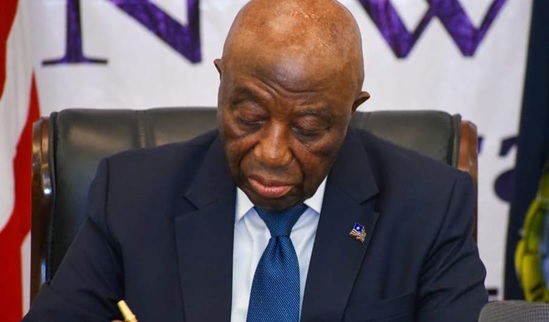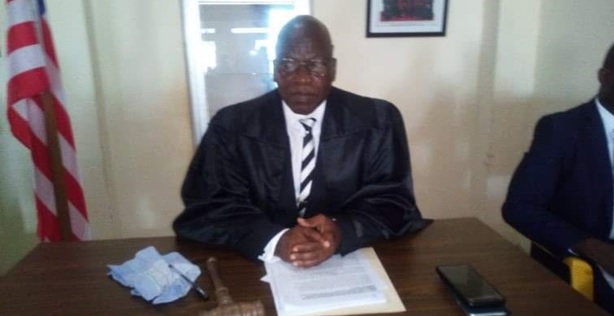LIBERIA – President Joseph Boakai announced today, July 5, 2024, that he will take a 40% cut in his salary. This decision, conveyed by Press Secretary Kula Fofana, comes amid widespread public discontent over the high salaries and benefits awarded to government officials in the Executive, Legislative, and Judicial branches. Despite its apparent significance, many details of the salary cut remain unclear, prompting both optimism and skepticism among the populace.
President Boakai’s move echoes a similar promise made by his predecessor, George Weah, who announced a 25% salary reduction during his tenure without providing specific details. Boakai’s pronouncement, if realized, would mark a more substantial reduction, potentially portraying him as a leader focused on the welfare of the people. According to Fofana, this measure aims to alleviate the economic burdens faced by Liberian citizens amid growing hardships.
The announcement has sparked significant debate and criticism on social media. Musa V. Willie voiced skepticism about the impact, noting the need for transparency and a system to track the savings from such cuts. Patrick Yelorbah echoed these concerns, demanding clarity on the President’s actual salary and the allocation of the saved funds. Other citizens, like George Clarke, called for broader reductions in salaries and benefits for all top officials, while Nyandy Gulawo suggested that the savings be directed towards specific sectors to foster growth. Eriksen McAllester Tarlue criticized the decision as a reaction to public pressure rather than proactive leadership.
Recent critiques from civil society activists, like Martin Kollie, highlight the increased budgets for key government figures, contradicting the spirit of economic restraint. Kollie pointed out significant budget increases for the President, Vice President, and other top officials, which cumulatively rose from $8.35 million to $11.14 million, a 24.98% increment. This increase is particularly glaring against Liberia’s backdrop of poverty and unemployment, prompting Kollie to call for substantial cuts in these budgets to fund essential sectors like health, education, security, and agriculture.
Kollie’s analysis underscores a broader governance issue where the needs of a few outweigh those of the many, fostering disillusionment and mistrust among voters. The stark contrast between the lavish budgets of officials and the impoverished conditions of ordinary citizens highlights persistent disparities. Despite previous promises of fiscal restraint, the current administration’s decision to increase its budget questions its commitment to economic reform and transparency.
Despite the public’s mixed reactions, President Boakai’s decision has placed significant pressure on other branches of government to follow suit. Citizens are now looking towards the Legislature and Judiciary to see if they will implement similar measures. The expectation is that a collective reduction in high-level salaries could lead to more substantial economic relief for the country. However, without a clear plan on how these savings will be reallocated, skepticism remains about the actual benefits of such cuts.
Moreover, the controversy surrounding the salary cuts underscores a larger issue of fiscal transparency and accountability in Liberia. Past promises of salary reductions and budget cuts have often lacked follow-through, leaving many citizens disillusioned. For President Boakai’s initiative to gain genuine support, it must be accompanied by detailed, transparent plans that outline how the savings will be used to improve public services and infrastructure. Only through such measures can the government rebuild trust and demonstrate its commitment to the well-being of its people.
The success of President Boakai’s salary cut will depend on the administration’s ability to implement and monitor these changes effectively. The government must engage with civil society, ensure transparent communication, and establish mechanisms for accountability to convince a skeptical public. If managed correctly, this initiative could mark a significant step towards addressing economic inequalities and fostering more inclusive growth in Liberia. However, it remains to be seen whether the President’s announcement will translate into tangible benefits for the country’s citizens.







